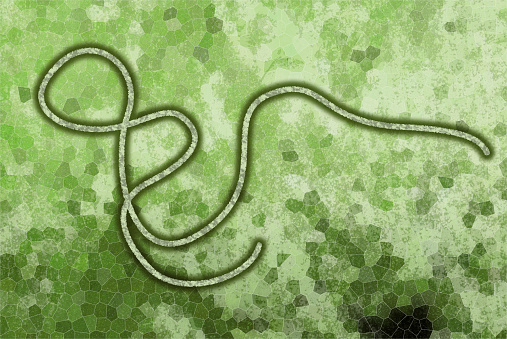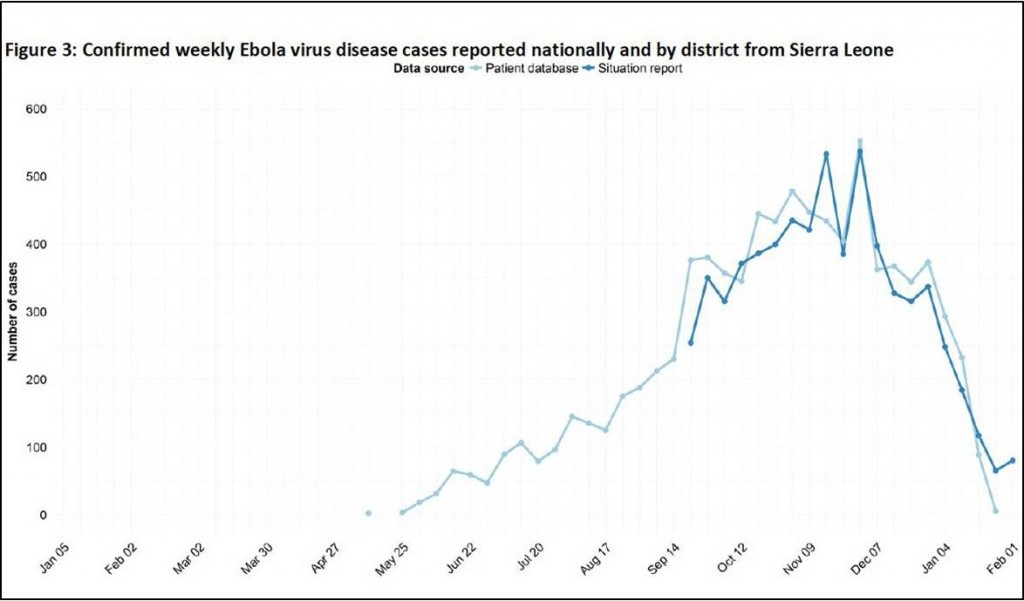Editors’ Note: The World Health Organization (WHO) reports that as of February 11, 2015, more than 10,000 people have died from Ebola, nearly all of them in the West African countries of Liberia, Sierra Leone and Guinea, and a small number in Nigeria.
In December, the WHO dispatched a response team to the Kono District, a remote diamond-mining area in the Eastern Province of Sierra Leone, where it found dozens of bodies.
Dan Kelly, M.D., a 2008 Einstein alum and co-founder and chief strategy officer of Wellbody Alliance, is on the front lines in Kono. We reached out to him back in December to better understand what was happening. Recent news reports suggest that the tide is turning in the battle against the disease despite recent spikes in Ebola cases in Sierra Leone. Dan provided this update on February 6, 2015.
 The new year brought a new outlook for West Africa and the Ebola crisis. A picture is worth a thousand words, and the February 2 situational report from the WHO published a graph showing the rapid decline in cases in Sierra Leone. I’m writing this update from an Ebola treatment center in Portloko, Sierra Leone. We continue to see waves of patients afflicted with Ebola present here, but the situation on the ground is reflected in the numbers published by the WHO. We have Ebola on the run. Now we have to get that number to zero.
The new year brought a new outlook for West Africa and the Ebola crisis. A picture is worth a thousand words, and the February 2 situational report from the WHO published a graph showing the rapid decline in cases in Sierra Leone. I’m writing this update from an Ebola treatment center in Portloko, Sierra Leone. We continue to see waves of patients afflicted with Ebola present here, but the situation on the ground is reflected in the numbers published by the WHO. We have Ebola on the run. Now we have to get that number to zero.

WHO Ebola Chart
Since my December blog post in December 2014 about the escalating crisis in Kono, we have managed to open an Ebola treatment center, four community care centers, and a BSL-3 diagnostic lab. In concert with the opening of the community care centers, we rolled out another phase of our community health worker program. As the program took shape, we observed an increase in patients at the centers, followed by a reduction of Ebola in the communities.
While the escalating crisis in Kono placed the district at risk of spiraling out of control, we have witnessed a rapidly improving situation. This was a pleasant surprise. To a large extent, we believe this is a positive example of a proactive, rapid response, and the implementation of lessons learned throughout the epidemic.
In Kono, Ebola is not over, but we have begun to shift our focus to an agenda related to the strengthening of health systems. The next step will be to move some of the Ebola community care centers to public clinics. Ebola will remain in our minds for a long time to come, and certainly this will be an important part of building a better surveillance system to prevent another crisis. Personally, I have learned four lessons from the crisis that I would like to share:
- We could have saved countless lives with modern medicine.
- The cycle of sickness and fear crippled the health and wealth of nations.
- Investing in health systems will help prevent the next plague.
- It’s not over until there are no new Ebola infections for 42 days in Guinea, Sierra Leone and Liberia.

